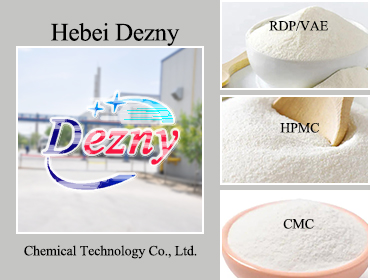
 2024-07-23- readings
2024-07-23- readingsHydroxypropyl cellulose (HPC) is an important water-soluble polymer compound. It plays an important role in enhancing suspension stability due to its unique physical and chemical properties. This article will discuss in detail the role of HPC in enhancing suspension stability, including its mechanism, specific applications, and the impact on the suspension stability of different systems.
### 1. Basic properties of HPC
HPC is a non-ionic cellulose ether with the following significant properties:
1. **Water solubility**: HPC can be dissolved in both cold and hot water to form a transparent solution.
2. **Thickening**: HPC solution has a strong thickening ability and can significantly increase the viscosity of the liquid.
3. **Film-forming**: HPC solution can form a uniform film on the surface and has a good protective effect.
4. **Biocompatibility**: HPC has good biocompatibility and low toxicity and is suitable for various fields.
### 2. Mechanism of HPC to Enhance Suspension Stability
1. **Thickening Effect**
HPC increases the viscosity of the suspension system through thickening, thereby enhancing the suspension stability of particles. High-viscosity liquid media can slow down the sedimentation rate of particles and make the suspended particles evenly distributed in the medium.
2. **Network Structure Formation**
HPC can form a three-dimensional network structure in the solution, which can capture and fix suspended particles to prevent them from agglomerating and settling. The formation of the network structure is achieved through the interaction between HPC molecules and the physical and chemical interaction with the suspended particles.
3. **Interface Stabilization**
HPC has good interfacial activity and can be adsorbed on the surface of particles to form a stable adsorption layer. This adsorption layer can increase the surface charge of the particles and increase the electrostatic repulsion between particles, thereby preventing the aggregation and sedimentation of particles.
4. **Lubrication and Dispersion**
HPC molecules have lubrication and dispersion effects, which can reduce the mutual friction and adhesion between particles in the suspension system and improve the dispersion and stability of particles.
### III. Application of HPC in different suspension systems
1. **Medical field**
In drug suspensions, HPC, as a thickener and stabilizer, can effectively improve the suspension stability of drug particles in liquid media. Its water retention and film-forming properties also help to improve the bioavailability and stability of drugs.
2. **Food industry**
HPC is widely used in food suspension systems, such as beverages, dairy products and condiments. Its thickening and stabilizing effects can prevent the precipitation and stratification of food particles, maintain the uniformity and stability of the product, and improve the taste and appearance of the product.
3. **Cosmetic industry**
In cosmetic suspension systems, HPC is used as a thickener, emulsifier stabilizer and film-forming agent, which can improve the stability of suspended particles, prevent component stratification, and improve the performance and stability of the product.
4. **Coatings and inks**
HPC, as a thickener and stabilizer in coatings and inks, can improve the suspension stability of pigment particles, prevent pigment precipitation and stratification, and ensure the uniformity and quality of the product.
5. **Agricultural chemicals**
In pesticide suspensions, HPC can improve the suspension stability of active ingredients, ensure the uniform release and persistence of drug efficacy, and improve the use effect and safety of pesticides.
### 4. Specific application cases of HPC to enhance suspension stability
1. **Application in drug suspensions**
In a drug suspension, by adding an appropriate amount of HPC, the suspension stability of drug particles can be significantly improved. Experiments show that when the HPC addition amount is 0.5%, the drug suspension can maintain good uniformity and no obvious precipitation after being stored at room temperature for 3 months.
2. **Application in dairy products**
In dairy products such as yogurt and milk, adding 0.2% HPC can prevent the stratification and precipitation of protein and fat particles, and maintain the uniformity and taste of the product. Experimental data show that dairy products with HPC added still have no stratification when stored under refrigerated conditions for 1 month.
3. **Application in pesticide suspension**
In a certain pesticide suspension, by adding 1% HPC, the suspension stability and dispersibility of pesticide particles can be significantly improved, ensuring that the pesticide is evenly released during the application process, and improving the use effect and safety of the pesticide.
### V. Factors affecting HPC in enhancing suspension stability
1. **Addition amount**
The addition amount of HPC has a significant effect on suspension stability. An appropriate amount of HPC can significantly improve the stability of the suspension system, but excessive addition may cause the system viscosity to be too high, affecting the performance. Therefore, it is necessary to determine the optimal addition amount according to the specific application.
2. **Dissolution conditions**
The solubility of HPC is affected by the dissolution temperature and stirring conditions. Appropriate dissolution temperature and stirring conditions can ensure that HPC is fully dissolved to form a uniform solution, thereby exerting its thickening and stabilizing effects.
3. **Particle characteristics**
The size, shape and surface properties of the suspended particles also affect the effect of HPC. Smaller, regular-shaped and smooth-surfaced particles are easier to remain stable in HPC solutions. Therefore, it is necessary to adjust the amount of HPC added and the dissolution conditions according to the particle characteristics.
### VI. Conclusion
In summary, hydroxypropyl cellulose (HPC) plays an important role in enhancing suspension stability. Through its thickening effect, network structure formation, interface stabilization, lubrication and dispersion, HPC can significantly improve the stability of the suspension system and is widely used in medicine, food, cosmetics, coatings and agricultural chemicals. Reasonable control of the amount of HPC added and the conditions of use can give full play to its role in enhancing suspension stability and improve product quality and performance.
In the future, with the in-depth study of HPC performance and application mechanism, the application of HPC in enhancing suspension stability will be further expanded and optimized, bringing more innovations and breakthroughs to the development of various industries.